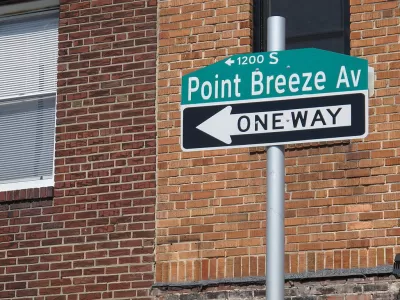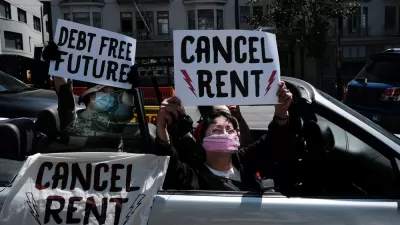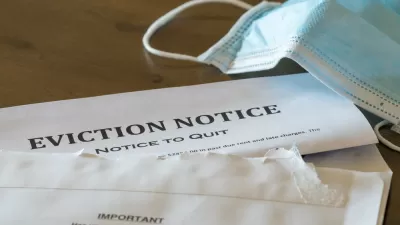In a typical pre-pandemic year, landlords in Philadelphia filed around 20,000 evictions. Last year, landlords filed just 4,500.

In a typical pre-pandemic year, according to research from the Reinvestment Fund, landlords in Philadelphia filed around 20,000 evictions. Between 2010 and 2019, that number shrank a bit, as employment, wages, and access to health insurance all inched upward, according to the group’s analysis. But rather than spiking when Covid-19 shut down the U.S. and put millions of people out of work, the eviction rate dropped. In 2020, landlords filed 4,500 evictions against tenants, according to the Philadelphia Eviction Prevention Project (PEPP), a coalition of legal aid and tenant advocacy groups.
The drop is thanks to a combination of federal moratoria on evictions, emergency rental assistance, and sustained local commitment to programs like eviction diversion, says Rasheedah Phillips, managing attorney for housing policy at Community Legal Services, one of the groups that coordinates PEPP. But Philadelphia is still one of the poorest big cities in America. And as the moratoria begin to expire this year, Phillips says, “The eviction rates are going to go right back up.”
The Philadelphia Eviction Prevention Project was launched at the beginning of 2018 with a $500,000 budget. Among the services the group provides are a tenant hotline for tenants to access legal services, a “lawyer-of-the-day” program providing free legal representation to tenants in eviction court, and frequent tenants’ rights workshops from the Tenant Union Representative Network. In 2019, PEPP had a budget of $2.1 million, and last year, after some budgetary negotiations during the pandemic fallout, it worked with $1.8 million, according to Phillips. This year, according to a report in WHYY, Mayor Jim Kenney’s proposed budget includes $931,000 for the project. (The city’s press office did not respond to questions about the proposal.) Advocates are now fighting to have at least $2.1 million restored for PEPP in the budget negotiation process between the mayor and city council.
FULL STORY: In Philadelphia, the Fight to Fund Eviction Prevention Continues

Alabama: Trump Terminates Settlements for Black Communities Harmed By Raw Sewage
Trump deemed the landmark civil rights agreement “illegal DEI and environmental justice policy.”

Planetizen Federal Action Tracker
A weekly monitor of how Trump’s orders and actions are impacting planners and planning in America.

The 120 Year Old Tiny Home Villages That Sheltered San Francisco’s Earthquake Refugees
More than a century ago, San Francisco mobilized to house thousands of residents displaced by the 1906 earthquake. Could their strategy offer a model for the present?

In Both Crashes and Crime, Public Transportation is Far Safer than Driving
Contrary to popular assumptions, public transportation has far lower crash and crime rates than automobile travel. For safer communities, improve and encourage transit travel.

Report: Zoning Reforms Should Complement Nashville’s Ambitious Transit Plan
Without reform, restrictive zoning codes will limit the impact of the city’s planned transit expansion and could exclude some of the residents who depend on transit the most.

Judge Orders Release of Frozen IRA, IIJA Funding
The decision is a victory for environmental groups who charged that freezing funds for critical infrastructure and disaster response programs caused “real and irreparable harm” to communities.
Urban Design for Planners 1: Software Tools
This six-course series explores essential urban design concepts using open source software and equips planners with the tools they need to participate fully in the urban design process.
Planning for Universal Design
Learn the tools for implementing Universal Design in planning regulations.
Clanton & Associates, Inc.
Jessamine County Fiscal Court
Institute for Housing and Urban Development Studies (IHS)
City of Grandview
Harvard GSD Executive Education
Toledo-Lucas County Plan Commissions
Salt Lake City
NYU Wagner Graduate School of Public Service




























